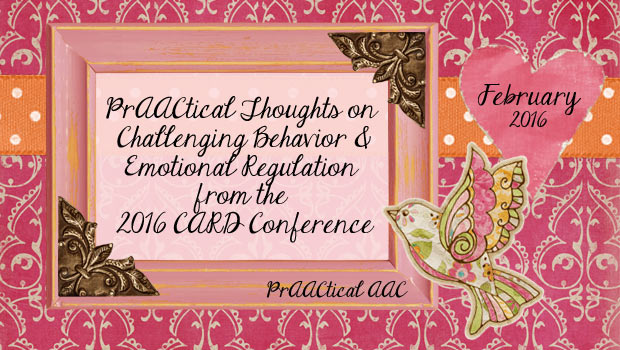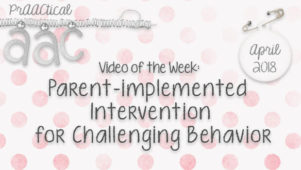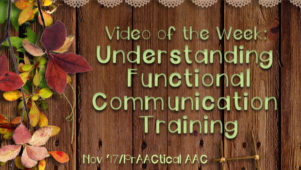PrAACtical Thoughts on Challenging Behavior and Emotional Regulation from the 2016 CARD Conference

Last month, I had an opportunity to hear Dr. Barry Prizant, Director of Childhood Communication Services and Adjunct Professor at Brown University, at the 2016 Center for Autism and Related Disabilities Conference. Many of you know Dr. Prizant as co-author of SCERTS, the Social Communication Emotional Regulation Transactional Supports Program, and his recent book, Uniquely Human, discussed in this video. At this conference, he spoke on ‘An Emotional Regulation Approach to Preventing Problem Behavior.’ Here are some points of interest from his presentation.
Dr. Prizant suggested that when someone is dysregulated, the first thing we should think about is biological factors that may be causing or exacerbating the problem. Why? Because unless we address the root of the problem, chances are slim that any behavioral, communicative, or psychological strategies will be effective in the long run. In some cases, there is a rather straightforward solution, such as teaching our client who is sensitive to sound to use noise dampening headphones.
Seven Universal Rules for Preventing Problem Behavior
The transition from a behavior management perspective to a emotional regulation perspective has important implications for how we support learners with behavioral challenges. Dr. Prizant’s list of rules for preventing problem behavior have something for all of us who work, live, and play with individuals who experience these challengees.
- Have developmentally appropriate task and attentional expectations given the person’s age and disability. Adjust intervention variables, such as the duration of the activity and the required motor skills, in order to help the learner stay regulated..
- Reduce stimulation. Slow down the rate of input. Simplify the environment, when necessary. This gives the learner more time to adjust to the demands and better access their coping skills.
- Use appropriate interpersonal and learning Supports, especially in high risk situations, such as transitions. This is the time to implement activity schedules and other strategies that build predictability and decrease uncertainty.
- Prioritize social communication skills (presymbolic and symbolic) and peer relationships. By providing our clients with the ability to communicate about their internal state and needs, we’re empowering them to get support from the people they encounter.
- Build self-determination skills. Consider goals for skills like choice-making, refusal, and protests so that our clients learn how and when to advocate for themselves.
- Build executive function (planning, organization) and self-regulatory skills.
- Utilize breaks systematically. Don’t forget to teach and practice them under low stress conditions before expecting the learner to use these them effectively.
Dr. Prizant’s handout from the session is available for a limited time. Many thanks to the amazing team at UCF CARD for putting together this wonderful conference. You can see videos featuring Dr. Prizant’s work here.
Filed under: PrAACtical Thinking
Tagged With: Challenging Behavior, emotional regulation
This post was written by Carole Zangari




